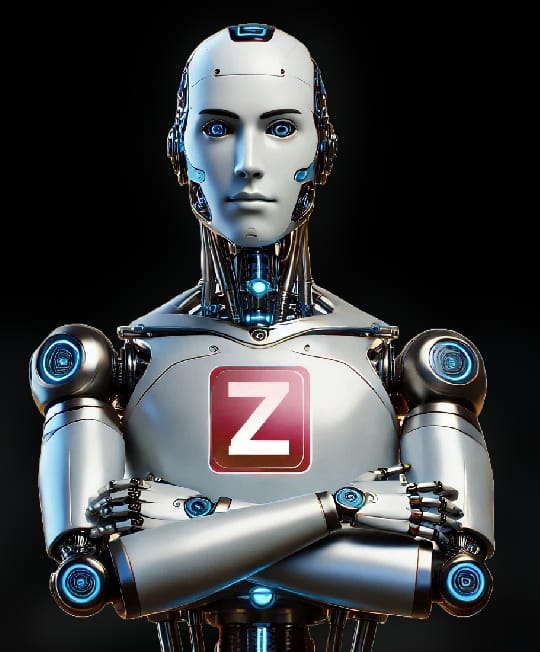We hear a lot about AI these days, especially tools like ChatGPT. But there’s another part of the AI world that’s becoming really important for businesses, particularly when it comes to how they interact with customers. These are often called AI agents.
So, what exactly are AI agents, and how are they different from the AI tools we might be more familiar with?
Understanding AI Agents
Think of an AI agent as a more advanced form of AI. While tools like ChatGPT are great at generating text or answering questions based on the data they were trained on, AI agents can actually perform actions and make decisions to achieve a specific goal. They don’t just process information; they can use that information to actively do things.
Imagine a customer service chatbot. A basic chatbot might just answer simple questions based on prewritten responses. An AI agent, on the other hand, could understand a customer’s problem, look up their order history, initiate a refund process, and even send a followup email, all without human intervention. They can string together multiple steps and interact with different systems to complete a task.
This ability to take action and work towards a goal is a key difference. It moves AI from being a tool for information processing to being a tool for task completion.
How AI Agents Work
AI agents typically operate in a cycle. They observe their environment (like a customer asking a question), process that information to understand the situation, decide on the best course of action based on their programming and goals, and then act on that decision (like sending a response or performing a task). They can also learn from their interactions, improving their performance over time.
This process allows them to handle more complex situations than simpler AI systems. They can adapt to new information and make adjustments to their plan as needed.
AI Agents and Customer Experience
This is where AI agents become particularly interesting for marketers and businesses focused on customer experience. Their ability to perform tasks and make decisions has a direct impact on how customers interact with a company.
Here are some ways AI agents are changing customer experience:
- Faster Service: AI agents can handle routine tasks and answer common questions instantly, reducing wait times for customers.
- 24/7 Availability: Unlike human agents, AI agents can work around the clock, providing support whenever a customer needs it.
- Personalized Interactions: By accessing customer data, AI agents can provide more personalized recommendations and solutions.
- Handling High Volumes: AI agents can manage a large number of customer interactions simultaneously, which is especially helpful during peak times.
- Freeing Up Human Agents: By taking over routine tasks, AI agents allow human customer service representatives to focus on more complex or sensitive issues that require human empathy and problemsolving skills.
Imagine a customer trying to resolve an issue with an online order. Instead of waiting on hold or going back and forth with emails, an AI agent could quickly identify the problem, verify the customer’s details, and initiate the necessary steps to fix it, providing a much smoother and faster experience.
Examples of AI Agents in Action
We’re already seeing AI agents being used in various customerfacing roles:
- Customer Support: Chatbots that can not only answer questions but also perform actions like processing returns or updating account information.
- Sales Assistance: AI agents that can guide customers through the purchasing process, recommend products, and even complete transactions.
- Personalized Marketing: AI agents that can analyze customer behavior and trigger personalized marketing messages or offers.
- Appointment Scheduling: AI agents that can book, confirm, and manage appointments for customers.
These are just a few examples, and as AI technology advances, we can expect to see even more sophisticated uses of AI agents in customer experience.
Thinking Beyond Basic Chatbots
It’s important to understand that AI agents are a step beyond the basic chatbots many of us are familiar with. While chatbots are often rulebased and limited in their capabilities, AI agents are designed to be more autonomous and goaloriented. They can learn and adapt, making them more effective at handling a wider range of customer needs.
For marketers, this means thinking about how AI can be used not just for communication, but for actively assisting customers and completing tasks. It’s about using AI to improve the entire customer , from initial contact to postpurchase support.
The Future of Customer Experience with AI Agents
As AI agents become more sophisticated, they have the potential to truly transform customer experience. They can provide instant, personalized, and effective support, freeing up human agents to focus on more complex issues. This can lead to higher customer satisfaction, increased loyalty, and ultimately, business growth.
, it’s also important to consider the ethical implications and potential challenges of using AI agents. Ensuring transparency, maintaining data privacy, and designing systems that are fair and unbiased are all important considerations as we move forward.
For marketers, understanding what AI agents are and what they can do is becoming increasingly important. It’s not just about the technology itself, but about how it can be used to create better experiences for customers. By thinking strategically about how to implement AI agents, businesses can stay competitive and build stronger relationships with their customers.
The shift towards AI agents represents a significant evolution in how businesses can use AI to interact with the world and with their customers. It’s a move towards AI that doesn’t just provide information, but actively participates in processes and helps achieve goals. This has profound implications for customer service, sales, and many other areas of business.
As marketers, staying informed about these developments is key to understanding how to best use AI to improve customer interactions and drive business success. AI agents are more than just a technological curiosity; they are becoming a practical tool for enhancing the customer experience.
